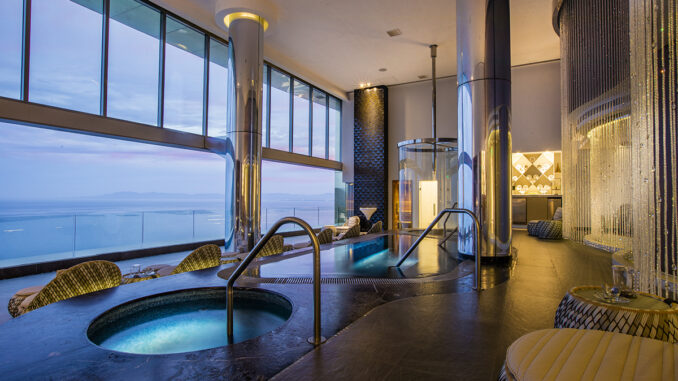
By HTN editors - 4.26.2025
The week of April 20 brought new developments in hotel technology, highlighting advancements in artificial intelligence (AI), digital marketing strategies, and regulatory changes impacting the hospitality industry.
AI Enhances Customer Service in Hospitality
Recent research from Pennsylvania State University explored how AI can bridge service gaps in the hospitality sector. The study identified four key areas where AI can improve service delivery: understanding customer expectations (listening gap), ensuring service standards are met (service performance gap), aligning service design with customer needs (service design and standards gap), and maintaining consistent communication (communication gap). By effectively addressing these areas, AI can enhance efficiency and customer satisfaction in hotels.
FTC Implements Rule Against Hidden Hotel Fees
The Federal Trade Commission (FTC) announced a new rule requiring hotels and ticket sellers to disclose all fees upfront during the purchase process. Effective April 2025, this regulation mandates that businesses clearly display the total price, including resort, convenience, and service fees, before checkout. The rule aims to prevent unexpected charges and promote transparency in pricing for consumers.
Lighthouse Acquires The Hotels Network
On April 16, 2025, Lighthouse, a leading commercial platform for travel and hospitality, announced its acquisition of The Hotels Network, known for its personalization technology that enhances direct bookings. This strategic move aims to integrate real-time hotel and short-term rental data with advanced personalization tools, offering hotels improved capabilities to drive direct bookings and channel growth.
Wellness Travel Trends Emphasize Holistic Health
Wellness travel in 2025 is focusing on longevity, community, and holistic health. Retreats are incorporating communal activities like hiking to foster social connections, and spas are emphasizing hydrotherapy circuits. Women’s health programs addressing menopause and fertility are expanding, and athletic travel is on the rise, with destinations offering training for various sports. Additionally, the industry is investing in sleep improvement techniques and neurofitness programs to enhance brain health.
Marriott Implements Hand-Scanning Technology to Combat Foodborne Illness
Marriott International has introduced PathSpot Technologies’ handwashing validation system across its properties to enhance food safety. This technology ensures that employees adhere to proper hand hygiene protocols, thereby reducing the risk of foodborne illnesses and improving overall guest safety.
Hotelogix Integrates AI Capabilities
Hotelogix has unveiled new AI-driven features within its property management system, aiming to streamline hotel operations. These enhancements allow for more informed decision-making and quicker responses to changing market conditions, ultimately improving efficiency and guest satisfaction.
Aggregate Intelligence Wins 2025 TravelTech Breakthrough Award
Aggregate Intelligence has been honored with the 2025 TravelTech Breakthrough Award for its market intelligence platform. The platform provides AI-driven insights across various sectors, including air travel, car rentals, and hotel technology, enabling businesses to make data-informed decisions.
AHLA and HTNG Launch Safety Resources for Lithium Battery Risks
The American Hotel & Lodging Association (AHLA), in collaboration with Hospitality Technology Next Generation (HTNG), has released new safety resources addressing the risks associated with lithium batteries. These guidelines aim to help hotels mitigate fire hazards related to devices like e-bikes and laptops.
These developments reflect the hospitality industry’s commitment to leveraging technology and innovation to enhance guest experiences, streamline operations, and adapt to evolving consumer expectations.
